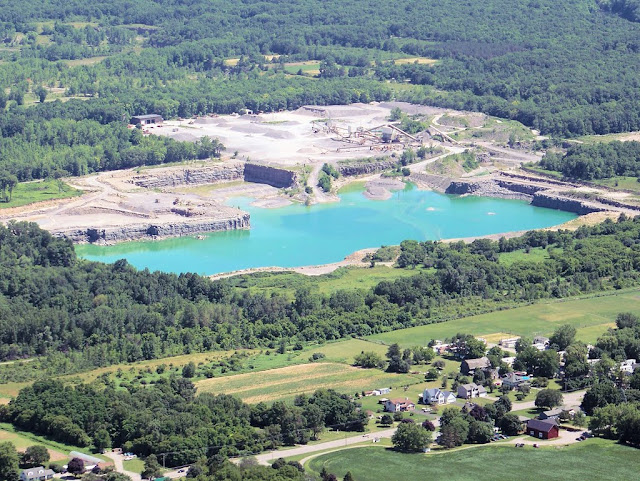| Date | Aircraft | Route of Flight | Time (hrs) | Total (hrs) |
| 1 Jul 2011 | N21481 | 5G0 (LeRoy, NY) - GVQ (Batavia, NY) - 5G0 - SDC (Williamson, NY) - 5G0 | 2.3 | 959.9 |
In 1928, Donald Woodward (of Jell-O fame) established a grand airport southeast of Le Roy. It had four paved runways and a large hangar building with an observation tower at one corner. By all accounts, it was a remarkable facility. The Donald Woodward Airport in Le Roy was once home to the Friendship, a Fokker trimotor that bore the first woman across the Atlantic by air: Amelia Earhart. Earhart, and other famous aviators of the time, were drawn to the magnificent private field in Le Roy. In 1931, the private airport beat out Buffalo and Rochester as the first overnight stop on the National Air Tour, hosting aviators such Jimmy Doolittle and Eddie Stinson (founder of Stinson Aircraft). For a time, Hawley Bowlus was a glider instructor in Le Roy. Bowlus was already famous for his key role in designing Charles Lindbergh's Spirit of St Louis and teaching Charles and Anne Lindbergh how to fly gliders. Sadly, the golden era of the magnificent airport only lasted from 1928 to the mid-1930's, where it fell victim to the Great Depression and dwindling interest from its original champion.
The old main hangar is still present, used by the city to store heavy equipment. It sits below where one would turn from crosswind to downwind while in the pattern for runway 28 at the current Le Roy airport. The outline of the field has always provided some hint of where the runways once existed...
...but, today, ghostly vestiges of the runways from former Woodward Field visibly haunted the site. This was the first time I had observed them so clearly.
More information about the Donald Woodward Airport in Le Roy can be found here or in the wonderful "Wings Over LeRoy" by Brian Duddy.
Just east of the modern-day Le Roy airport is Genesee Country Village, another home to ghosts. I overflew today and studied the place through the crystal clear air. I was particularly struck by the octagonal structure below, the Hyde House. In the 1840s, Hyde was a strong proponent for the virtues of this unusually shaped dwelling, a veritable Buckminster Fuller from an earlier century.
Soon enough, it was time to leave the ghosts of the past behind and return to the present day Le Roy airport. I had promised to ferry Ray and Porter to Williamson-Sodus (SDC) to retrieve Ray's airplane.
Returning to the modern day Le Roy airport, I was struck by the amazing color of the water trapped in the quarry north of the field.
That color is not an effect of digital processing; it really looked like that today.
The modern day Le Roy airport may lack the magnificent hangar structure and multiplicity of runways that Woodward Field boasted, but it does have one heck of an impressive swimming pool nearby!







I get to see quite a few of the water filled quarry's when flying over NJ. Most of the NJ pits are from the glass factory hay days. The water color is unique, it always stands out.
ReplyDeleteGary
Hey Gary - The greenish blue of the water reminded me of the water color near some of the Alaskan glaciers. My understanding was that fine silt suspended in the water causes that color change. These are active quarries (or, were before they filled with water) and I could not help but wonder if the striking color had the same root cause.
ReplyDelete